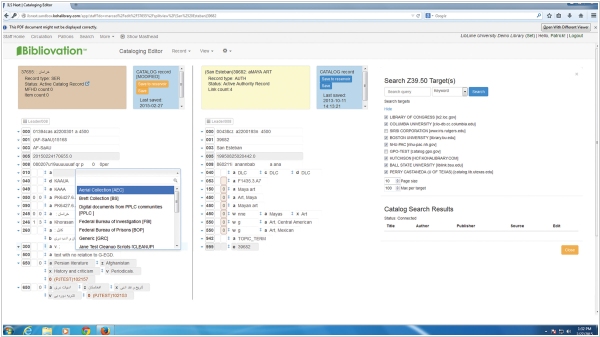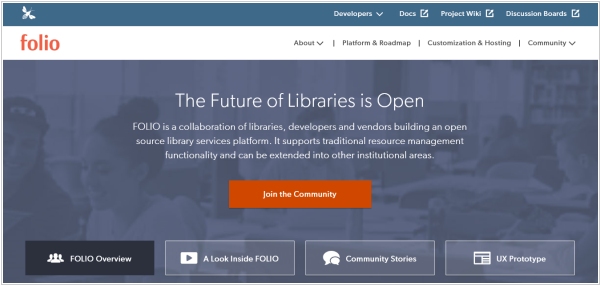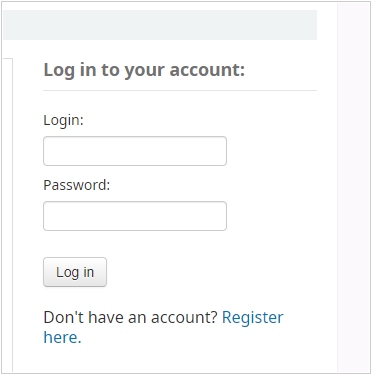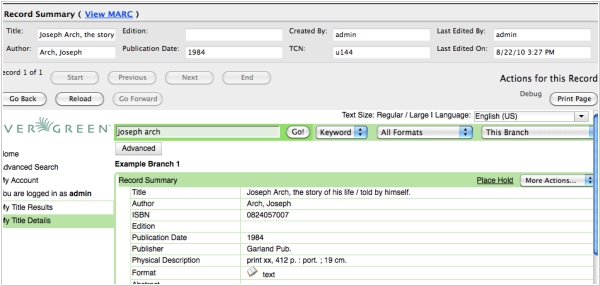Top 10: Corporate Library software
July 30, 2023 | Author: Maria Lin
Corporate Library software is a robust and sophisticated platform tailored to the information management needs of large organizations. Designed to centralize and optimize access to vast repositories of digital assets, this software empowers corporate librarians and knowledge managers to efficiently organize, catalog, and curate a wide range of documents, research materials, reports, and multimedia content. With advanced search capabilities and metadata management, employees can quickly locate pertinent information, bolstering their decision-making and research processes. The software often integrates with other corporate systems, facilitating seamless collaboration and content sharing across departments and teams. Robust security features and access controls ensure that sensitive information is protected while enabling controlled access for authorized personnel. Through comprehensive analytics and reporting tools, Corporate Library software enables organizations to gain valuable insights into knowledge utilization, improving business intelligence and facilitating continuous improvement. In a fast-paced corporate landscape, this software becomes an invaluable asset, empowering companies to harness their collective knowledge, drive innovation, and maintain a competitive edge in their respective industries.
Some of the most popular Enterprise Library management software are listed below.
See also: Top 10 Library Management Software
Some of the most popular Enterprise Library management software are listed below.
See also: Top 10 Library Management Software
2023. Bibliovation 7.2 gets online payment options

LibLime introduces the latest version of its ILS software Bibliovation 7.2. It is entirely web-based, granting researchers, library staff, and system administrators access through web browsers. By leveraging the FedRAMP authorized IaaS and PaaS certification from Amazon AWS Cloud, along with a special security authorization from the US Department of Defense's cybersecurity experts for SaaS, Bibliovation provides libraries with a highly secure and cost-effective hosting solution. It supports various standards such as MARC21, Dublin Core, RDA, and geotagging, enabling libraries to manage both physical and digital content on a single Rest API-based platform. The Bibliovation circulation subsystem is purpose-built to facilitate shared union catalog solutions, granting individual consortium members significant autonomy, including ownership of local bibliographic records, item records, and patron records. Bibliovation MARC cataloging allows for local control over cataloging rules that can complement or surpass AACR2 and RDA rulesets. The acquisitions subsystem in Bibliovation is EDI-compliant, featuring a multi-tiered fund hierarchy and supporting the import of csv data converted into the MARC21 format for streamlined acquisition workflows. Additionally, Bibliovation now includes online payment options and comprehensive NCIP support. With hosted production, reporting, and test systems, libraries have the necessary capabilities and control to effectively support their daily operations.
2022. FOLIO 14 brings electronic resource management

The FOLIO Open Source Community has released the new version of its Library Management system FOLIO 14, which brings additional features and functionality to the library services platform (LSP). This release introduces updates to various existing applications and features, including acquisitions, bulk-edit, electronic resource management (ERM), and more. This release aims to enhance the user experience for librarians within the FOLIO platform by introducing improvements such as better user interfaces for cataloging, data import, and circulation through the calendar app. Acquisitions enhancements include the ability to preview fiscal year rollover, generate new invoices from order records, manage GOBI integration through a dedicated user interface, and download/resend EDIFACT order export files using the Export manager app. The ERM features improvements in managing and sharing dashboards, enhanced keyword searching for agreements, advanced search and filtering options for agreement lines, display of alternate titles, and the ability to export package and title details via the eholdings app. Furthermore, bulk-edit capabilities have been expanded to allow bulk editing of user records, FOLIO holdings locations, and item loan types within the platform.
2022. Koha enables two-factor authentication

The new version of ILS system Koha 22.05 introduces an optional initial implementation of two-factor authentication (2FA) to enhance security during staff interface logins. This new feature incorporates time-based, one-time passwords (TOTP) as the second authentication factor. Librarians can utilize a dedicated application to manage the TOTP and obtain the necessary code for logging in. To enable 2FA for their account, librarians can navigate to More > Manage Two-Factor Authentication. The setup process involves the following steps: 1) Scan the QR code using an authenticator app. 2) Enter the generated one-time code. Subsequent logins will prompt librarians to enter the authenticator code after providing their regular login credentials. Any authenticator app, such as Google Authenticator, andOTP, and various others, can be utilized for this purpose. It is recommended to use applications that offer backup options for 2FA accounts, either through cloud-based or automatic methods.
2021. Evergreen adds acquisitions administration, holdings maintenance

The release of Evergreen 3.8 is announced by The Evergreen Community. Evergreen is a highly-scalable software designed for libraries to facilitate the discovery of library materials by patrons and assist in managing, cataloging, and circulating those materials, regardless of the library's size or complexity. This release brings numerous new features and enhancements, such as Angular rewrites of several staff interfaces including acquisitions administration, holdings maintenance, item attributes editor, patron triggered events log, and item triggered events log. Additionally, it introduces a case-insensitive option for browsing headings, a new interface for editing notes attached to bibliographic records, improvements to the staff interface for browsing bib records attached to a heading, and consolidation of patron notes, messages, alert messages, and standing penalties into a unified notes interface. Other additions include settings for determining item value based on item price and acquisition cost, enhancements to override event dialogs in checkout and renewal interfaces, the ability to edit the patron photo URL during registration, settings for hold stalling based on pickup library, settings for default pickup location for staff-placed hold requests, utilization of a newer Stripe API for credit payments in the public catalog, display of cover images in My Account pages for items checked out, check out history, holds, and holds history, and new reporting views such as item statistics and Dewey call number blocks and ranges.

